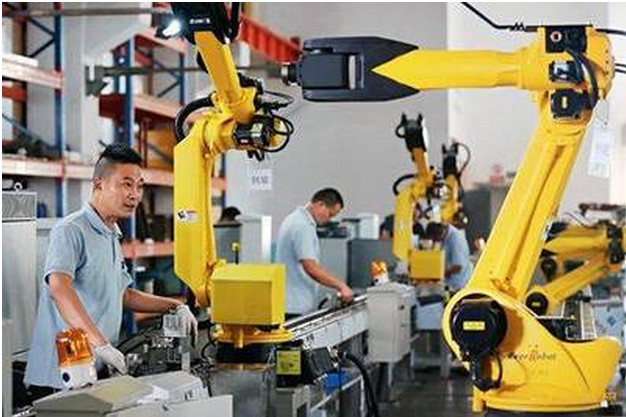Experts call for stronger AI governance to prevent risks

Workers inspect and maintain industrial robots. Through years of development, China has achieved significant breakthroughs in AI application. In this context, experts have called for strengthening prevention, restraint and guidance to lower security risks.
At a forum hosted by the Western Returned Scholars Association, and organized by the Center for China and Globalization in Beijing on Aug. 12, experts and scholars discussed how China can take the strategic initiative in international competition, prevent risks and deal with uncertainty in the era of AI and big data.
Progress in AI technologies
China has achieved significant breakthroughs in AI through years of constant effort. It is a global leader in speech and visual recognition technologies while adaptive learning, intuition, synthesis reasoning, cyborg and collective intelligence are developing at a rapid pace. Chinese information processing, intelligent monitoring and driving, biometric recognition, and industrial and service robots are gradually put into practical use.
In addition, innovation and business startups are thriving in this sector. A group of foundational enterprises are accelerating the growth of these fields.
“In terms of AI, China is on a level playing field with other countries,” said Guan Xin, an investor in the US Singularity University. He added that AI relies heavily on big data and IT. China should fully take advantage of its rich big data resources accumulated from thousands of years of history and social dynamics, and its world-class supercomputers.
Zhang Hongjiang, former chief technology officer at Microsoft Asia-Pacific R&D Group Headquarters, said the key to making AI breakthroughs is deep-learning algorithms, access to huge amounts of data and computational power. The internet in China is outperforming other countries in creating data with abundant data resources in terms of face recognition, user behavior, traffic and transactions.
Strengthening guidance
AI technological innovation is stepping into uncharted territory, where no previous experience exists and uncertainty is ubiquitous. The same applies to supporting policies, regulations and relevant ethical issues. This requires us to figure out ways to enhance prevention, restraints and guidance, thus minimizing security risks.
Li Xiaodong, director of the Research Center of Internet Governance at Tsinghua University, said that despite rapid development of AI, some fundamental issues regarding governance remain. One example is data governance. Its possession and use by different parties results in ethical dilemmas.
Currently, for instance, there’s no clear regulation specifying the ownership of transaction data generated by users on online platforms. If ownership rests in the hands of the users, then online transaction platforms are not entitled to access big data; but if online platforms own the data, user information is left unprotected. “It’s imperative to clarify who owns and has the right to use data. Only in this way can the dos and don’ts for AI be identified,” said Li.
MAO LI is a reporter at the Chinese Social Sciences Today.

 PRINT
PRINT CLOSE
CLOSE